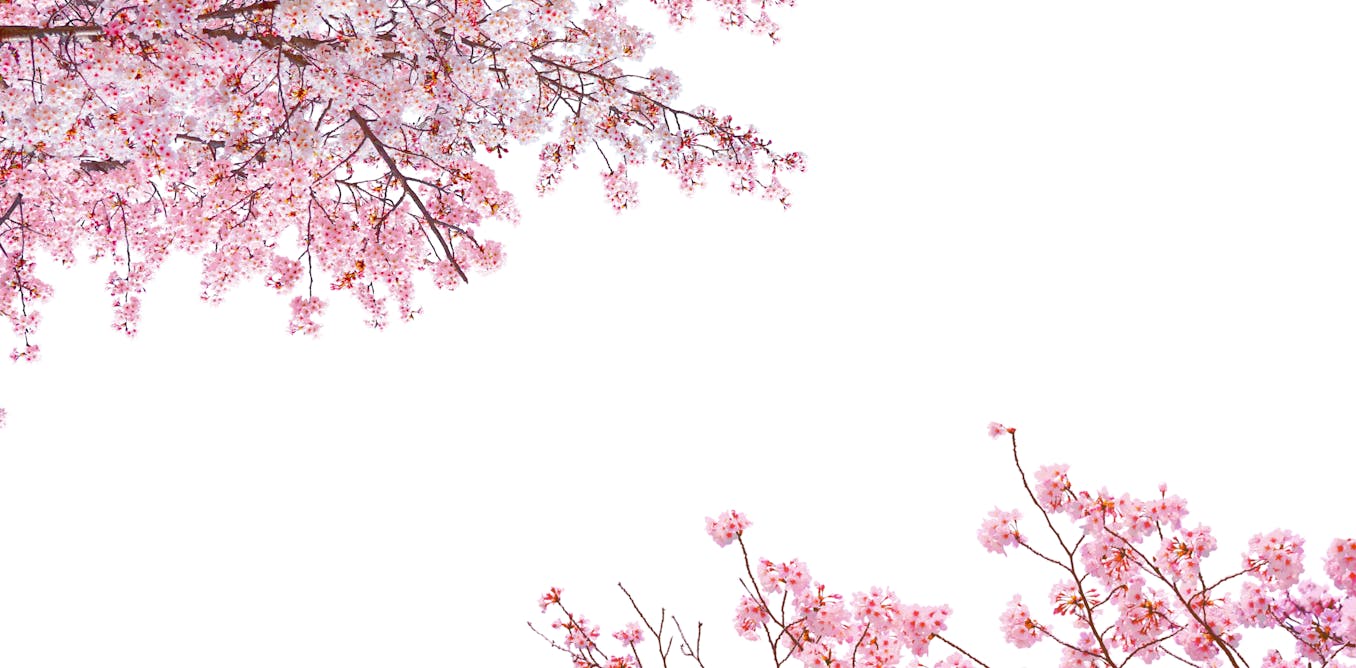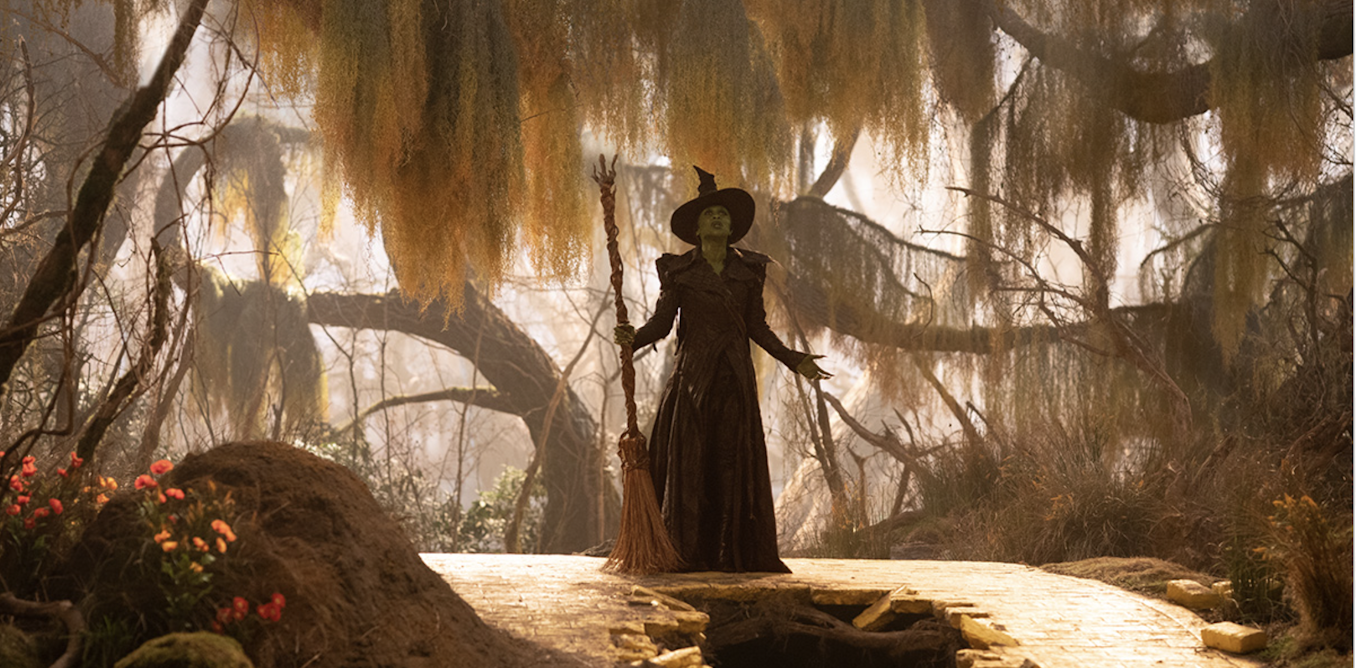Poems can invite us to appreciate the beauty around us, while motivating us to take action to protect it. Blossomise, a collection by the UK’s poet laureate Simon Armitage, celebrates the arrival of spring and the importance of nature in our lives.
This anthology includes 21 poems, featuring 11 haiku – short, three-line poems that capture the essence of a moment, typically involving nature. Traditional Japanese haiku consists of three lines with a 5/7/5 syllable pattern, but modern adaptations often use fewer syllables and do not strictly adhere to this structure.
The haiku in Blossomise reflect contemporary concerns about the climate crisis, depicting how shifting seasons affect natural elements and subtly highlighting the signs of a changing climate. These haiku serve as palate cleansers between the longer poems, while also weaving the collection together with their succinct reflections on the transformations in nature. Throughout this collection an appreciation of nature is beautifully balanced with a call to environmental action.
Armitage has long been an advocate for environmental themes. His earlier work, In Praise of Air, features a poem that was printed out on a 20-metre-high banner mounted on a building overlooking the busy A57 road in Sheffield – the banner uses nanotechnology to “eat pollutants” and clean the air, blending art and environmentalism.
In 2019, Armitage also founded the Laurel prize, an annual award for nature or environmental poetry, to raise awareness about climate issues, donating his annual laureate honorarium of £5,000 towards the prize money each year.
Blossomise continues this advocacy by presenting nature as a constant presence in our lives, emphasising that blossoms and nature should be accessible to everyone, not just the privileged few who can visit protected spaces. In doing so, Armitage vividly depicts nature intertwined with urban life.
In The Spectators, he references the “lost bees trying the wrong doors”, and in Plum Tree Among the Skyscrapers he writes:
poor Cinderella
rootling about
in potting compost
of burger boxes
and popped poppers
These poems remind us that nature thrives all around us, even in the most unexpected places. This universality of nature underscores the need for climate action as a matter of social justice. Protecting and preserving nature should not be a luxury, but a shared responsibility. By ensuring that everyone has access to natural spaces, we can foster a deeper connection to the environment and, through this, increased social cohesion and a collective drive to combat climate change.
In a poem titled Birthday, Armitage envisions a world where nature thrives with our support, and reminds us how we should perhaps feel when it does not:
Planet Earth in party mode,
petals fizzing and frothing
like pink champagne.
Then Nature walked with me
into the car park,
lifted the blindfold
and showed me a cherry tree
fit for the age.
Embarrassment. Rage.
This embarrassment and rage reflect a deep awareness of our shortcomings and a call to action. Armitage’s poetry serves as a reminder that the fight against the climate crisis is not just about preserving beauty, but about ensuring fairness and equity in our relationship with the natural world.
These poems also remind us that nature will persist beyond us, as shown in his haiku The Wild Cherry Tree:
The wild cherry tree dumped me,
then brought me flowers,
then dumped me again.
A conspicuous example of this resilience is seen in Fukushima. After the nuclear disaster in 2011, humans abandoned the area, and nature began to reclaim the land.
Design by Faber. Illustrated by Angela Harding., CC BY-ND
Plants and animals have flourished in the absence of human activity, with wild boar, birds, and even rare species returning to the region. This resurgence highlights nature’s ability to recover and persist, even in the face of catastrophic events.
Blossomise suggests an essential reality: although human actions can significantly harm the environment, nature possesses a remarkable capacity for recovery and endurance. Nature will outlast humanity, highlighting the importance of cherishing and protecting it while we can. This viewpoint promotes environmental stewardship as both a duty and an honour, aiming to ensure that future generations can experience and appreciate nature’s enduring resilience.
The poet’s prerogative
This perspective aligns with the role that poets can play in addressing the climate crisis by making the issue more relatable and emotionally impactful. The collection evokes a sense of longing for nature, urging readers to both appreciate and protect the natural world. Armitage’s work continues the rich tradition of British nature poetry, integrating the environmental changes of our time with personal reflections.
By following in the footsteps of poets including John Clare, who captured the intricate details of the countryside, and Ted Hughes, who explored the raw power of the natural world, Armitage brings a contemporary lens to this tradition.
More recently, poets such as Alice Oswald and Kathleen Jamie have also been instrumental in portraying the environment’s beauty and fragility, blending observations of nature with a deep awareness of its vulnerability.
Armitage’s poems in Blossomise draw on this lineage, offering a poignant yet subtle commentary on climate change. He avoids preaching, instead weaving personal experiences with broader ecological themes. This approach makes his poetry accessible and fosters a deeper emotional connection with the reader, highlighting the intrinsic value of nature and the need for its preservation.
Through his evocative verses, Armitage invites us to see the natural world not just as a backdrop for human activity but as a vital presence that demands our respect and care.

Don’t have time to read about climate change as much as you’d like?
Get a weekly roundup in your inbox instead. Every Wednesday, The Conversation’s environment editor writes Imagine, a short email that goes a little deeper into just one climate issue. Join the 30,000+ readers who’ve subscribed so far.

The post “Poems can inspire us to appreciate nature and spark positive action – Simon Armitage’s new anthology does both” by Sam Illingworth, Professor of Creative Pedagogies, Edinburgh Napier University was published on 08/06/2024 by theconversation.com



































Leave a Reply